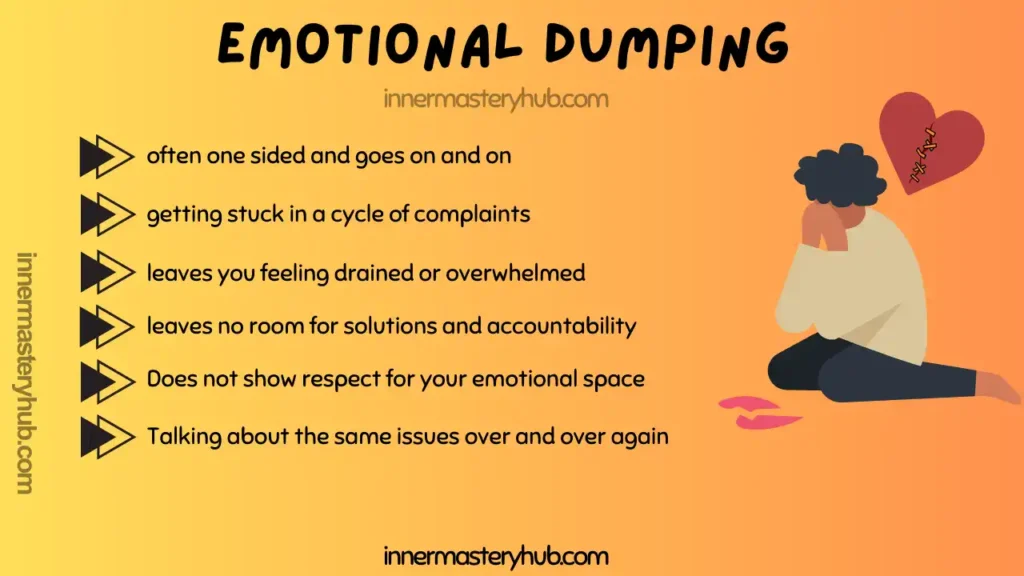What Are the Low Key Signs That Reveal a Person’s True Character?

In my years of navigating relationships, both personal and professional, I’ve learned that a person’s true character often reveals itself in low key ways. These “low key signs” are easy to overlook but can provide deep insights into someone’s nature. Let’s explore these signs together.
Missing the low key signs About People
You’ve likely met someone who initially seemed wonderful. They seemed to have it all together, made you laugh, and said all the right things. Over time, however, their words and deeds became inconsistent. Perhaps they didn’t follow through on plans, didn’t care about your sentiments, or revealed an unexpected side. Isn’t that annoying?
You feel deceived, confused, and sometimes even doubt your own perspective. The issue is that we tend to pay more attention to what people say than to what they actually do. We fail to notice the little clues that may have given us a sneak peek at their actual nature right away.
Why This Matters
First impressions are made in a matter of seconds, according to research, yet they are frequently predicated on flimsy characteristics like charm or looks (Willis & Todorov, 2006).
However, over time, consistent behavioral patterns reveal true character. If you ignore these low key signs, you may wind up misjudging those who are truly excellent or putting your trust in the wrong individuals. Being able to understand these low key signs can help you avoid heartbreak and create more solid, genuine relationships.
The Cost of Ignoring Low Key Signs
There may be serious repercussions if these low key signs are ignored. I’ve been in that situation before—trusting someone because they seemed kind, but then discovering they were dishonest. For instance, I used to work with a coworker who was constantly grinning and complimenting me throughout meetings.
They would, however, avoid their duties and engage in backroom gossip about coworkers. I could have avoided relying on them if I had been more aware of their little behaviors, such as how they interacted with others or handled deadlines.
This is supported by research showing that people’s moral character can be strongly predicted from their tiny, daily actions (Cohen et al., 2014). You run the risk of surrounding yourself with people who sap your energy, violate your trust, or hinder your progress if you ignore these low key signs.
The stakes are enormous, particularly in intimate partnerships or work environments where morality is crucial.
Observing Low key signs & Behaviors
Here are 21 low key signs that can reveal a person’s true character. Let’s dive into these subtle but powerful indicators:
1. How They Treat Service Staff
A person’s behavior with waiters, cashiers, or cleaners reveals a lot about them. People generally express their actual selves when they believe no one is watching them or when they don’t expect anything in return. A person’s true kindness is clearly shown by how kind, friendly, and respectful they are to service personnel. On the other hand, someone who treats employees rudely or casually could be entitled or disrespectful to other people.
For instance
Consider someone who shows courtesy to a waiter despite the busy restaurant and delayed service. They exhibit empathy and maturity by remaining understanding and avoiding blame for the employees.
2. Consistency Between Words and Actions
The proverb “Actions speak louder than words” is surely familiar to you. This is particularly relevant when determining the genuine character of an individual. Trustworthy people are those who always match their words with their deeds.
A warning sign is when someone claims to care about something but never does. Sincere people don’t just act when it’s convenient; they act by their principles and convictions.
For instance,
It’s possible that a friend who consistently offers to support you but never does so is more concerned with projecting compassion than with truly being there for you.
3. Handling Criticism Gracefully
Although everyone makes mistakes, a person’s response to criticism reveals a lot about their emotional maturity. Good-natured people take constructive criticism without getting defensive or upset.
Instead of viewing it as a personal assault, they see it as a chance to develop. You can rely on someone to manage other difficulties with poise if they respond to criticism in a composed manner and use it to do better.
Imagine giving a coworker comments on their presentation, and rather than becoming defensive, they express gratitude and want additional advice. This indicates that they respect your viewpoint and are receptive to change.
4. Accountability
When someone accepts responsibility for their acts, even when it is uncomfortable, they are demonstrating true character. Refusing to assign blame and admitting faults are unmistakable indicators of integrity. Individuals who never acknowledge their shortcomings or errors might be concealing something, or perhaps they are not self-aware enough to change.
A person demonstrates high responsibility when they own up to their mistakes at work and take action to correct them rather than placing the blame elsewhere.
5. Empathy
Empathy refers to the capacity to understand and relate to another person’s emotions. Empathic persons are sensitive to the feelings of others and are ready to lend a hand when others are struggling. A person is compassionate and kind-hearted if they consistently seem to understand your feelings without you having to explain them.
A friend’s capacity to support you during your time of need is evident when they lend you their ear when you’re anxious or agitated.
6. Generosity Without Expectation
Big acts aren’t the only way to be generous. Sincere generosity is giving without anticipating anything in return. This could be as easy as volunteering your time to assist a buddy in need or offering to help someone with their shopping. They act out of concern rather than in an attempt to regain something.
Selflessness is displayed by a coworker who stays late to assist you in finishing a project, even if they have nothing to gain from it.
7. Respecting Boundaries
One important indicator of emotional intelligence is the ability to respect others’ boundaries. People who truly care about other people won’t force them into uncomfortable circumstances. They are aware that everyone has boundaries and that respecting those boundaries is crucial.

It demonstrates respect for your limits when someone extends an invitation to you but accepts your “no” without pressing.
8. Listening Skills
Hearing is only one aspect of listening; another is comprehending and reacting correctly. In talks, people of good character eagerly listen to you and make you feel important. Instead of talking over you or interrupting, they pay attention to what you have to say and make sure they grasp your viewpoint.
Making eye contact, nodding in agreement, and asking questions to demonstrate understanding are all examples of active listening during a conversation.
9. Humility
A strong characteristic that shows emotional maturity is humility. Humble people don’t flaunt their accomplishments or try to draw attention to their good deeds. Rather, they are happy to let their actions speak for themselves. They are aware of their shortcomings and know that they are always developing.
Someone is grounded when they acknowledge the efforts of others and modestly attribute their accomplishment to teamwork.
10. Handling the Success of Others
When someone enjoys the achievement of others without feeling envious or resentful, that person demonstrates true character. A person who truly celebrates the accomplishments of others exudes confidence. On the other hand, someone who feels angry or jealous may be insecure or self-centered.
Imagine a coworker who, rather than being upset about your promotion, supports you. This demonstrates their stability and support.
11. Apologizing When Necessary
An expression of maturity is an apology. Self-reflection is possible for those who are prepared to apologize when they have erred. A genuine apology demonstrates that the other person loves the relationship and is prepared to make things right.
A buddy shows accountability and respect if they express regret for being late and admit that their behavior affected your time.
12. Avoiding Gossip
Those who refrain from gossiping are typically better people. Insecurity, envy, or the desire to control others are common causes of gossip. You can rely on someone to be direct and honest if they refrain from spreading rumors and engaging in this behavior.
A trustworthy person is often one who avoids speaking ill of others behind their back or publicly criticizing them.
13. Calm Under Pressure
One can learn a lot about a person’s actual character from how they respond under pressure. Those who maintain their composure under duress are frequently more grounded and confident. People who lash out or panic may have trouble controlling their emotions and may find it harder to trust when things become tough.
A coworker who maintains focus and assists others in staying on course at a challenging deadline exhibits strong moral fiber and emotional stability.
14. Being Present
Being fully present during a discussion or circumstance demonstrates respect for the subject matter and the individuals concerned. Their phone or other worries aren’t keeping them from paying attention. Someone values you if they pay attention to you and try to participate without interjecting.
A spouse shows respect and attention when they put down their phone at dinner and have a meaningful conversation.
15. Consistency in Behavior
When someone acts consistently in various contexts, it reveals who they really are. Being authentic is when someone behaves the same way around everyone, no matter who is around. However, if they adopt different personas based on the population or circumstance, that is a warning sign.
It’s more likely that a friend is sincere if they act the same way in official and informal situations.
16. Open to Feedback
Humility and a desire for development are demonstrated by someone receptive to criticism and eager to get better. Instead of taking criticism personally, they view it as an opportunity to grow and improve.
A person who solicits and acts upon comments on their work is exhibiting a dedication to personal development.
17. Supportive in Difficult Times
Going through difficult situations frequently reveals a person’s genuine nature. A true buddy or ally is someone who supports you during difficult times, even if it is inconvenient for them.
A friend demonstrates their commitment and concern when they help you get through a difficult time without flinching or whining.
18. Avoiding Manipulative Tactics
To get what they want, manipulative people frequently resort to pressure, flattery, or guilt. Genuine character is demonstrated by someone who respects your independence and doesn’t attempt to dictate your choices.
Emotional maturity is demonstrated by a buddy who accepts your choice to turn down an invitation without making you feel bad about it.
19. Respect for Differences
A strong character is characterized by respect for the cultural, religious, and intellectual differences of others. Individuals who appreciate diversity are typically more tolerant and open-minded.
When someone listens respectfully to conflicting viewpoints without attempting to persuade you to change, they are exhibiting tolerance and openness.
20. Gratitude
An appreciative person acknowledges and expresses gratitude for the positive aspects of their life. Being grateful is a sign of humility and gratitude for other people. Expressing thankfulness frequently demonstrates that one is appreciative of and conscious of the contributions made by others.
A coworker who expresses gratitude for your assistance, even with minor tasks, demonstrates respect for the work put out by others.
21. Self-Reflection
Self-awareness is typically a sign of true character. Individuals are more likely to be grounded and genuine when they take the time to consider their feelings and behaviors. They want to get better and learn from their mistakes.
A person showing a high degree of self-awareness acknowledges when they were in error and acts to rectify their actions.
Trust Your Observations
You can learn a lot about someone’s true character by observing these low key signs. Since actions speak louder than words, you can develop deeper, more genuine relationships by seeing how someone acts in many contexts. Keep in mind that sincere people will demonstrate who they really are by their constant behavior, not just their words.
How to Use These Signs in Your Life
You don’t have to keep a checklist with you, but begin to look for these low key signs in conversations. Over time, make a mental note of trends. For instance, it’s a warning sign if someone is consistently nice to strangers yet unkind to you. They are probably trustworthy if they regularly arrive on time and fulfill their commitments. Although they are not infallible, these indicators help you get a better sense of a person’s character.
Useful Advice for Recognizing Low Key Signs
Practical Tips for Spotting Low Key Signs
- Observe Over Time. Avoid making snap judgments based on a single encounter. Seek out recurring trends.
- Trust Your Gut. These small clues are frequently the reason why something feels strange.
- Pose Questions. Have discussions with them to observe their responses to various subjects.
- Compare their words and behavior; if they don’t match, believe what they say.
Why These Signs Matter for Your Relationships
You may surround yourself with positive individuals by being aware of these low key signs. By avoiding toxic interactions, you will strengthen your bonds with people who share your beliefs. According to research, having close social ties enhances life happiness and mental health (Holt-Lunstad et al., 2010). By paying attention to these small signs, you’re investing in happier living and stronger relationships.
Conclusion
I’ve found that the low key signs about a person’s character are like breadcrumbs; they reveal their true nature. You may choose more wisely who to trust by seeing how people behave, deal with stress, and fulfill commitments.
You will improve your ability to read people if you begin to notice these 21 indicators in your everyday life. It’s about keeping your peace and forming deep friendships, not about passing judgment. What low key signs have you observed in those around you? This week, try observing one or two and see what you discover.
Frequently Asked Questions About Low Key Signs of a Person’s True Character
What are low key signs of a person’s true character?
Pay attention to how they behave in normal circumstances, particularly when they believe no one is looking. Words and deeds must be consistent.
How can I identify someone’s true character?
Pay attention to how they behave in normal circumstances, particularly when they believe no one is looking. Words and deeds must be consistent.
Are these signs universal across cultures?
Certain actions can be viewed differently depending on cultural standards, even though other behaviors are universally accepted. The cultural environment must be taken into account.
Can someone fake these behaviors?
Indeed, some people can imitate these actions. But eventually, contradictions frequently surface, exposing their actual nature.
How do these signs relate to emotional intelligence?
A person’s capacity to comprehend and manage emotions is reflected in several subtle indicators of strong emotional intelligence, including empathy and self-awareness.
Why is it important to recognize these signs?
Building sincere relationships and avoiding those who might have ulterior intentions are made easier by being aware of these warning flags.
Do these signs apply in professional settings?
Of course. One can learn about a colleague’s character by observing how they handle criticism, manage stress, and treat their subordinates.
Can these signs predict future behavior?
Consistent low-key indicators can provide hints about a person’s potential future behavior; however, they are not infallible.
How can I apply this knowledge in daily life?
Observe how people treat others, especially in difficult circumstances, pay attention to low-key signs, and listen intently.
Are there any resources to learn more?
Indeed, psychological papers and books on body language and emotional intelligence can offer a more in-depth understanding.
#TrueCharacter
#EmotionalIntelligence
#BodyLanguage
#Authenticity
#TrustBuilding
#CharacterTraits
#PsychologyInsights
#SelfAwareness
#GenuineConnections






